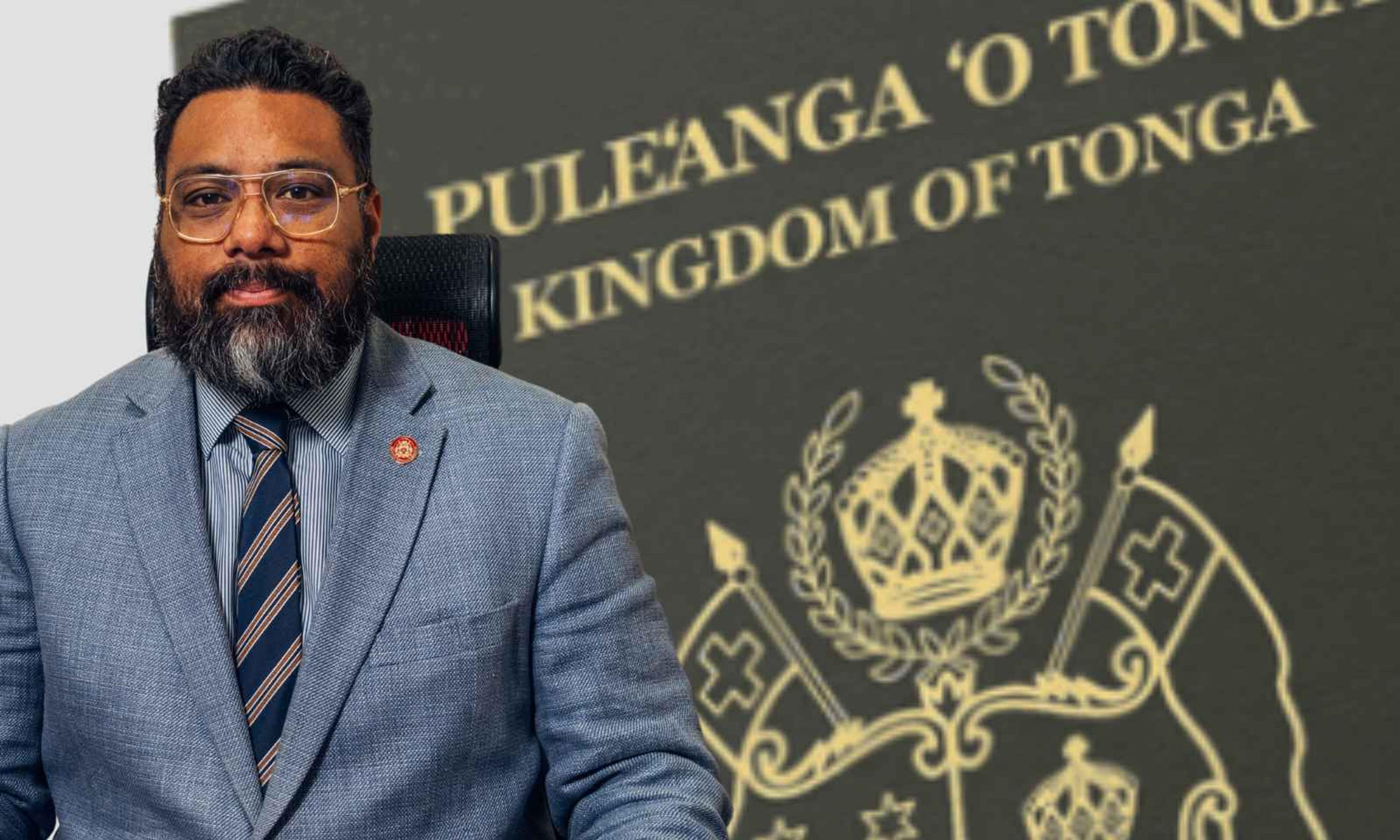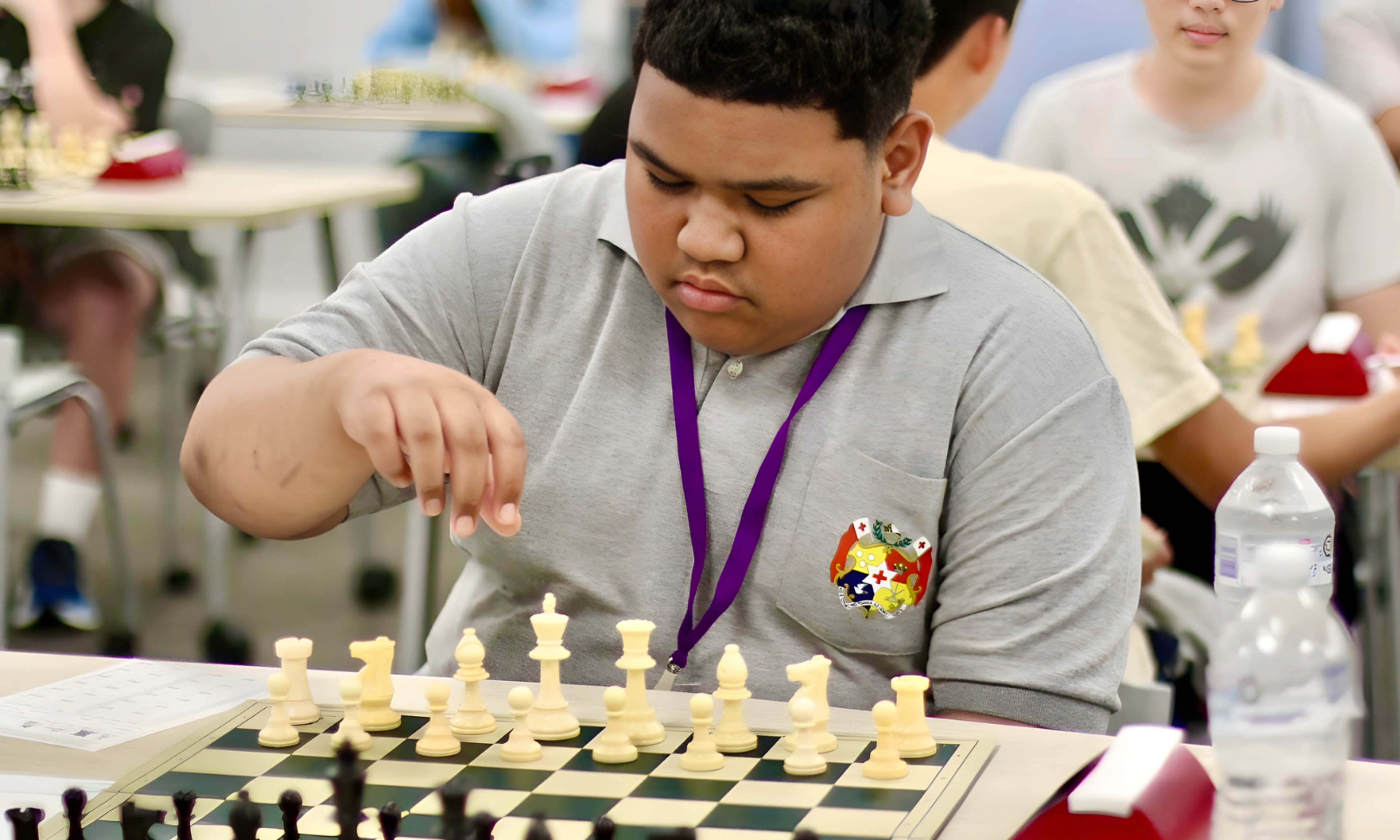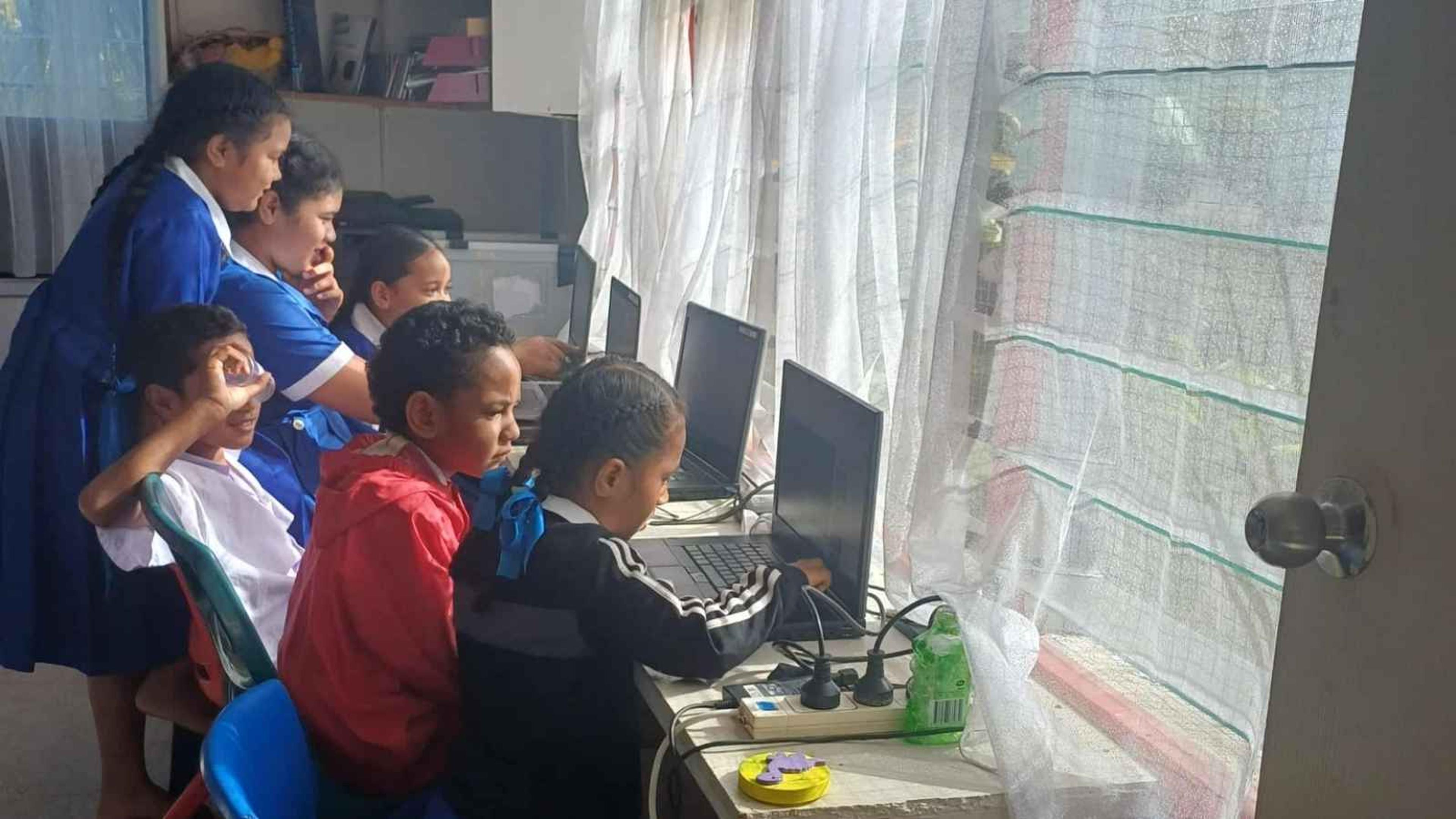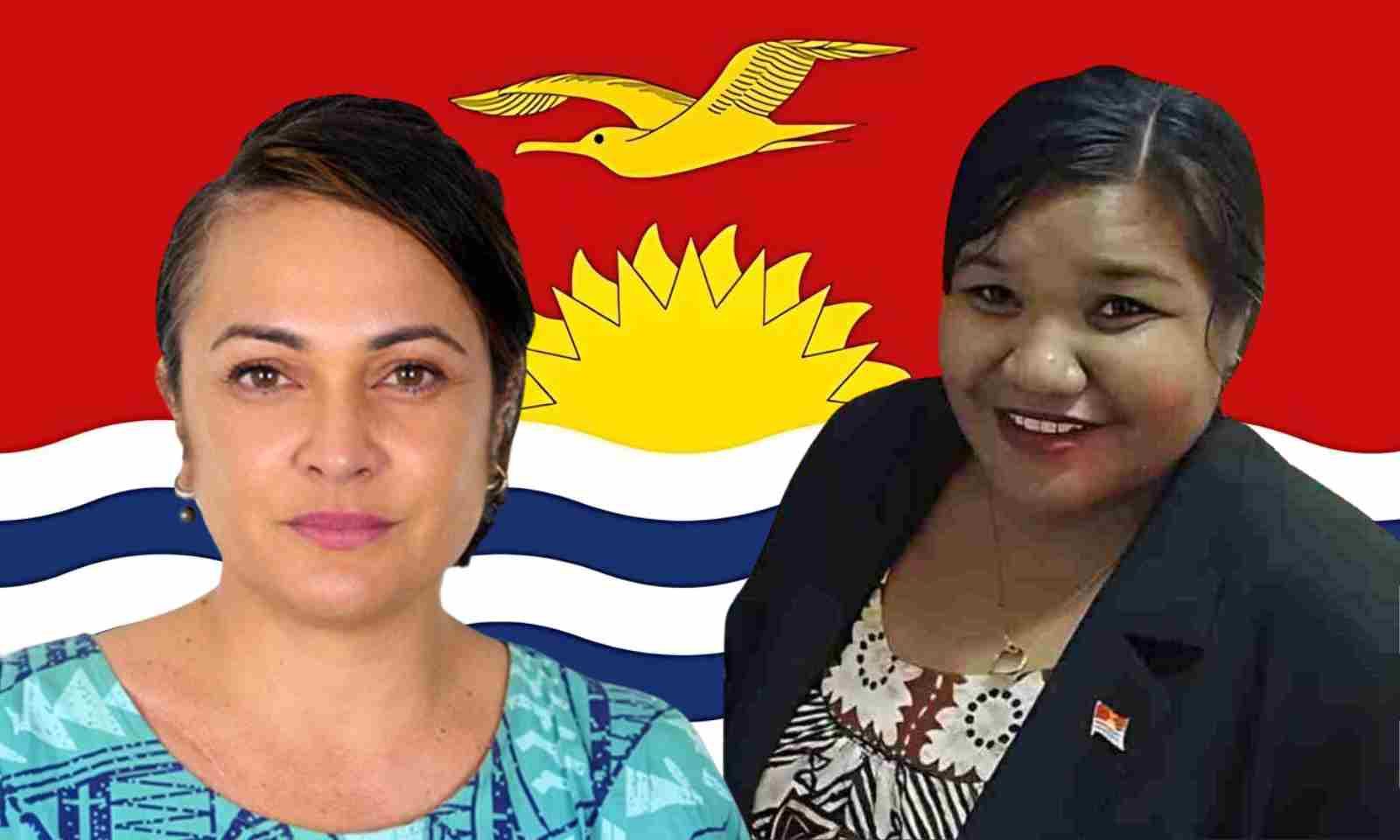

Taneti Maamau looks set to retain the presidency in Kiribati.
Photo/president.gov.ki
Support growing for China-backed leadership in Kiribati
Taneti Maamau looks set to return as President, and only a defection of party MPs can change his course.


‘I knew something was wrong’: Pacific children miss out on early hearing support

Tonga makes historic breakthrough at Oceania Youth Chess Championship

‘A Library for the Heart of Tonga’: Building a hub for Nuku’alofa

Fresh warning as Tonga PM defends citizenship investment scheme

‘I knew something was wrong’: Pacific children miss out on early hearing support

Tonga makes historic breakthrough at Oceania Youth Chess Championship

‘A Library for the Heart of Tonga’: Building a hub for Nuku’alofa
Sometimes you need to be unpopular to become popular.
The experts also say that one of the most overlooked, but critical qualities of leadership is a leader's courage and preparedness to do what is unpopular.
The Pacific has its fair share of such leaders. Taneti Maamau, of Kiribati, is among them.
Since switching his country's allegiance from Taiwan to China four years ago, the 64-year-old politician has not been popular with the United States and its Western allies.

Kiribati Parliament Building at Ambo, Tarawa. Photo/Maneaba ni Maungatabu
Taiwan has lost six diplomatic allies to China including the Solomon Islands and Nauru. Beijing has for decades stepped up its efforts to isolate the self-ruled Taipei that China claims as its own.
The US and China competition are having global effects on diplomacy, economics, and security with China overtaking the US as the largest trading nation and is projected to surpass the US in GDP.
China’s Belt and Road Initiative (BRI), an expansive infrastructure and investment initiative across the world including the Pacific, is at the centre of this economic rivalry.
Many political commentators see the BRI as a way to increase China’s geopolitical influence.
Last month's general election in Kiribati has been seen as a test of strengthening ties between China and the government of the climate-threatened Pacific island nation.
This test has also come amid fears following a period that has revealed Kiribati's strained relations with its Pacific neighbours, tensions with Washington and Australia, and a continuing constitutional crisis.
Watch i-Kiribati in Aotearoa celebrate Wikin te Taetae ni Kiribati - Kiribati Language Week in July.
Located 4700km north of New Zealand, Kiribati has a population of 131,000 people with 52,941 of them registered voters (74 per cent), according to a government report in 2022.
In Maamau's bid to return to government for a second term, the incumbent i-Kiribati President looks set to win the popular vote next month.
Following August's election, Maamau's landslide victory in the Onotoa Constituency has paved the way for his return to the Maneaba ni Maungatabu, House of Assembly.
That's not all. The parliament is dominated by Maamau's ruling Tobwaan Kiribati Party with 35 out of the 45 MPs elected in TKP's ranks.
If you look at the four presidential candidates considered for the office of Te Beretitenti, there is no doubt the other three are "dummies". They are either from his constituency or friends of Maamau and the TKP.
The first sitting of parliament was held last Friday, and after the MPs were sworn in, a Speaker was elected. He is Willie Tokataake, former minister for Infrastructure and Sustainable Energy, who lost his seat in last month's election.
Of the 17 new MPs, five are women - a record for the Pacific island nation. Ruta Teretia Babo-Nemta, of Maiana, and Ruth Cross Kwansing, of Tarawa, are among them.
Babo-Nemta, 35, campaigned under the TKP while Kwansing, 45, stood as an Independent in the election.

First-time MPs Ruth Cross Kwansing and Ruta Teretia Babo-Nemta are supporting incumbent President Taneti Maamau. Photo/supplied
It's clear who Babo-Nemta will vote for come October but Kwansing has since put her support behind Maamau's TKP. Why?
She told Pacific Mornings' William Terite that from the outset, people who she spoke with did not care too much about geopolitics and "any of the contentious issues.
"They wanted us to talk about what we plan to do to help our country develop.
"There were rules put in place before the election started that cancelled all diplomatic visits, and visas so, no one could enter the country.
"The focus is entirely on us internally, on what we need and what the MPs can do to fulfil those needs."
Kwansing says although the international support in Kiribati is "huge because we're reliant on that", it certainly wasn't a "great big topic here".
It's jobs such as the seasonal labour mobility initiative that i-Kiribati want," she says.
"It was more about what we could do for the people and not what needed to happen in terms of the international relationships."
Watch first-time MP Ruta Teretia Babo-Nemta's full interview below.
Kwansing believes these are the reasons she has put her support behind Maamau and welcomed China's presence in Kiribati.
"They're already here and of course we support them and just as much as they support us. What I've seen since then, much to my happiness, is how this was navigated because what we've seen is a lot of positive outcomes, I believe.
"I don't know that we really quite understood at the time that that was what was going to happen in terms of the geopolitical implications and how it reignited interest in the Pacific region, particularly Kiribati.
"I think at the time, they were making a decision that seemed like the right thing to do for our government because it had been a switch from China to Taiwan once upon a time and then it was another switchback.
"So, you know, when it happened, the things that we've seen come out of it have been not just for the benefit, we think, for Kiribati, but for other Pacific Islands as well as the interest has turned back to the region.
"For us here, however, we're seeing some positive developments, you know, road infrastructure and other things, because I think initially the support has been more focused on building that relationship.
"But now we're starting to see some great things coming out of it that the country is excited about."
Is Kiribati getting lost in the game of geopolitics? Kwansing thinks not.

Kiribati MPs were at a swearing-in ceremony in Parliament last week. Photo/Kiribati parliament
"One of the things that I have noticed is just how careful our government has been with all of its diplomatic relationships. The way it's restricted any external visits and what have you. I think it speaks to the level of scrutiny and consideration that go on within to determine how these relationships are managed.
"Now if you think about what's happened, apart from the resumption of that diplomatic tie, there hasn't been anything too wildly alarming or crazy that has happened in Kiribati in terms of that religion.
"We haven't had any major infrastructural changes that you might question. So you could look at other Pacific islands and go, well, right, they built this and they built that and these are the arrangements under which they entered into.
"We've had none of that. We simply have a new in-country presence of another diplomatic tie, and we're exploring that and analysing that, and we have the US embassy that's also planning to be built.
"We're just as carefully and slowly as we do move in terms of these things, it is being done very carefully. So if I were to say what you know, in relation to advice to other Pacific nations, it's the same.
"It's to really deeply analyse the benefits of what is being offered versus what you actually need and then to make sure that you don't enter into any arrangements that are not beneficial for your people.
"Anything that's going to compromise that or jeopardise that is not even on the table. So just being very careful is what I would say."
The presidential election will be held on 31 October.
Watch first-time MP Ruth Cross Kwansing's full interview.